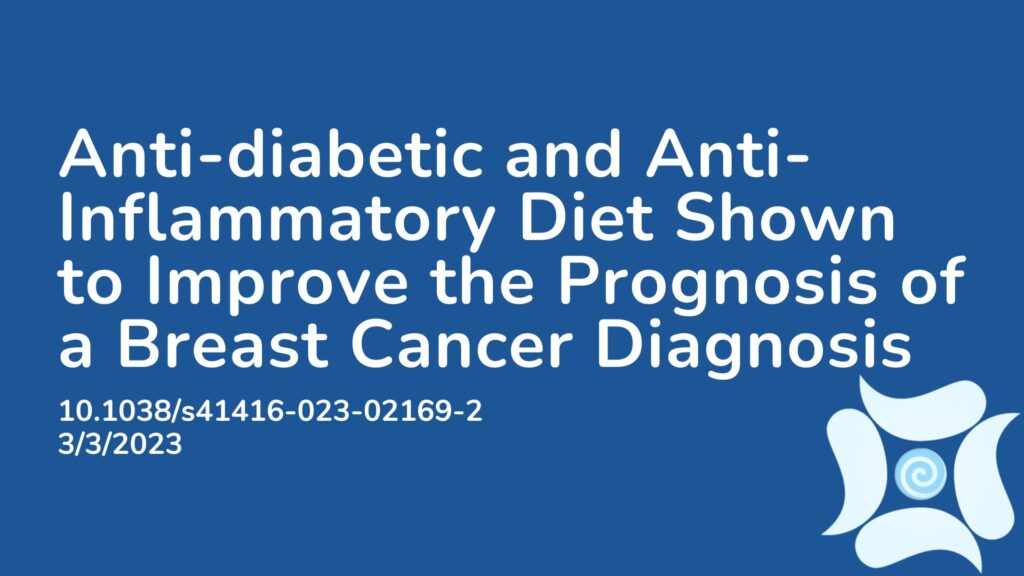Summary:
The purpose of this paper was to examine whether there is a relationship between dietary patterns before a breast cancer diagnosis and survival rate of breast cancer. The results were calculated by extracting dietary pattern data from a different study that had taken self-reported dietary data from breast cancer patients. The dietary patterns that were analysed were an anti-diabetic and anti-inflammatory diet, and presence of oestrogen-related foods. The results included over 13,000 cases of breast cancer and the participants were followed for over 8 years after diagnosis. The results showed that a higher adherence to a diabetes friendly diet was associated with lower overall mortality (not specific to breast cancer) and that greater adherence to pro-inflammatory diet was associated with 6% higher risk of death from breast cancer. No significant association was present between an oestrogen-related dietary pattern and death from breast cancer. The authors therefore concluded that a greater adherence to an anti-diabetic and anti-inflammatory diet prior to diagnosis of breast cancer is associated with lower overall mortality among breast cancer survivors, and that ongoing healthy dietary patterns could be a means to improve the prognosis of a breast cancer diagnosis.
Abstract:
Background: Inflammatory, insulin and oestrogenic pathways have been linked to breast cancer (BC). We aimed to examine the relationship between pre-diagnostic dietary patterns related to these mechanisms and BC survival. Methods: The diabetes risk reduction diet (DRRD), inflammatory score of diet (ISD) and oestrogen-related dietary pattern (ERDP) were calculated using dietary data from the European Prospective Investigation into Cancer and Nutrition (EPIC) study. Cox proportional hazards models were used to assess associations between dietary patterns and overall mortality and competing risk models for associations with BC-specific mortality. Results: We included 13,270 BC cases with a mean follow-up after diagnosis of 8.6 years, representing 2340 total deaths, including 1475 BC deaths. Higher adherence to the DRRD score was associated with lower overall mortality (HR1–SD 0.92; 95%CI 0.87–0.96). Greater adherence to pro-inflammatory diets was borderline associated with 6% higher mortality HR1–SD 1.06; 95%CI 1.00–1.12. No significant association with the oestrogen-related dietary pattern was observed. None of the dietary patterns were associated with BC-specific mortality. Conclusions: Greater adherence to an anti-diabetic and anti-inflammatory diet prior to diagnosis is associated with lower overall mortality among BC survivors. Long-term adherence to these dietary patterns could be a means to improve the prognosis of BC survivors.
Article Publication Date: 3/3/2023
DOI: 10.1038/s41416-023-02169-2



